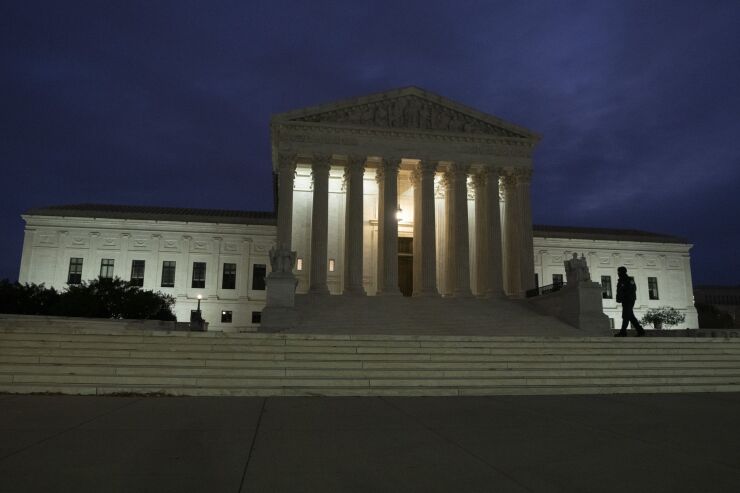
When the Supreme Court heard oral arguments on the
And yet it seems that some dreams never die. The plaintiffs in that case last month thesubmitted a motion in the 5th Circuit arguing that the court "erred in its disposition of the non-Appropriations Clause challenges in this case, which the Supreme Court did not review," signaling their intention to keep the party going. In the 5th Circuit's 2022 opinion — which found the bureau's funding unconstitutional, teeing up the Supreme Court's decision almost two years later — the appellate judges granted summary judgment on all of the plaintiffs' complaints save for those related to the bureau's funding, saying that "for the most part, the Plaintiffs' claims miss their mark."
The CFPB filed
I think even the plaintiffs in Community Financial Services Association of America v. CFPB must know that their bid to reopen the case is a long shot, though
Let's presume for a moment that Scott's argument about the Fed's earnings is the one that gets litigated and comes before the Supreme Court. The best plaintiffs can hope for is a deep meditation on whether "earnings" is synonymous with "profits" or "income." If the court decides it is the former, it would establish a regime whereby a federal agency drifts in and out of being funded — or at least being funded constitutionally — and that seems like an outcome that even this Supreme Court is inclined to avoid. More to the point, the plaintiffs' case is based on the validity of the bureau's 2017 payday lending rule, which was promulgated well before the Fed stopped turning a profit.
But even if there is some other constitutional argument out there against the CFPB's existence, its chances of succeeding where the last two have failed seems increasingly remote. That isn't to say that CFPB actions can't be challenged in court — many already are, and depending on how the forthcoming Supreme Court opinion on the Chevron doctrine goes, those challenges may become routine. But brute force challenges to the existence of the CFPB seem like a dead end for everyone except litigation attorneys.
That is not to say that opponents of the agency are out of options — Congress could pass a law abolishing the bureau or amending its structure any time they want. But there are not and have not been the votes to do so because
Of course, public opinion can change and is susceptible to influence. It is also true that if former President Trump wins in November, the actions coming out of the CFPB will likely be viewed more favorably by the agency's opponents. Individual lawsuits against individual agency actions may yield favorable results for affected industries. Giving up the dream of defeating the CFPB once and for all doesn't necessarily mean taking each of its actions lying down.
But it's time to change gears and acknowledge that






